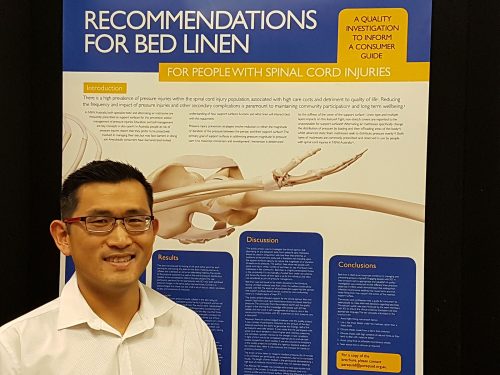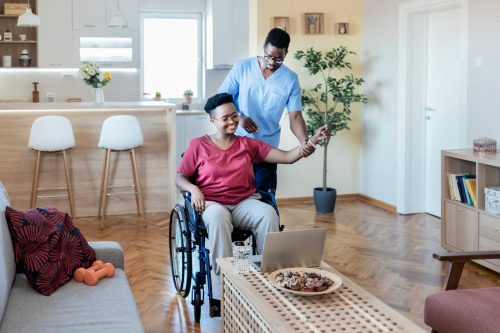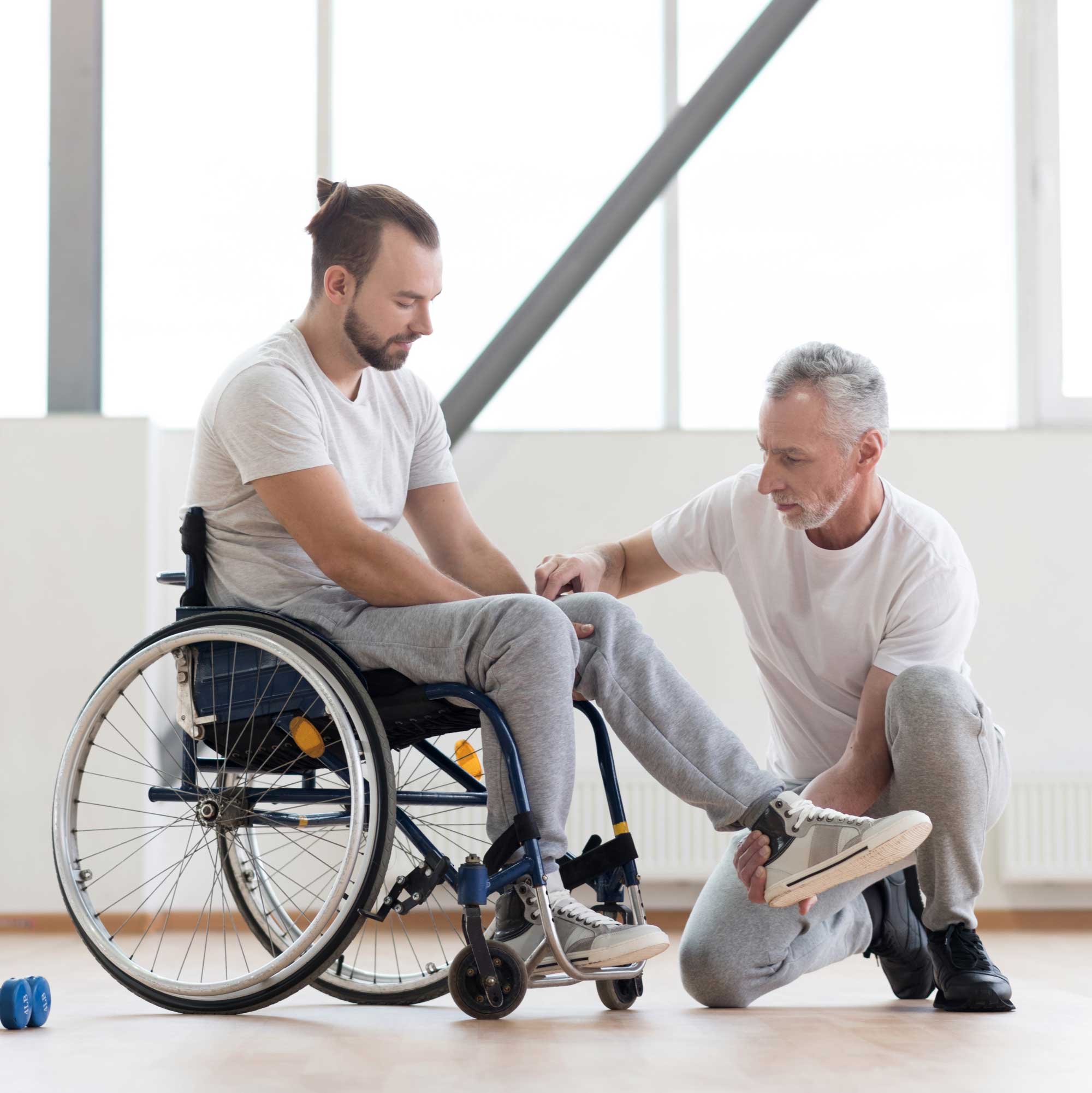OT Week is a time to celebrate our amazing Occupational Therapists and the work they do. It is also a time to educate the wider community on the benefits of OT in health and wellbeing. This year’s theme of participation, inclusion and independence celebrates the role OTs play in supporting people of all abilities to engage in activities they find meaningful.
Occupational Therapy is such an important part of care and support at ParaQuad. We asked one of our OTs, Jason Lowe, about his experience working with clients and supporting individuals on their OT journey.

When it comes to your clients, what do you believe the benefits of active participation are? (Mentally, physically, emotionally?)
In my mind, the most central part of being an OT is to empower people to be an active participant in their own lives and to have control over what they do, how they do it and when they do it. Therefore, I don’t believe that I should be answering this for any of my clients.
As a father of 2 living an active life, I can only imagine what it’s like when I can assist someone with a spinal cord injury to be able to:
- Sit without pain
- Carry their baby
- Chase their kids the park
- Walk their dog
- Support a young adult move out of their parent’s home
- Go to the footy and order a drink at the bar
- Change the channel on their TV
- Play golf!
- Represent their country playing the sport of their choice
These are all goals I’ve assisted people with an SCI achieve that they didn’t know was possible! I’ll let them tell you how that makes them feel!
Can you tell us about an experience where the ability to participate in engaging activities has boosted a client’s self-esteem and help reach their goals.
I have a client who had been using her first powered wheelchair for ten years. When it was time for a new wheelchair she didn’t want to change. However, in the ten years since acquiring her first wheelchair she had become a mother. With a toddler in tow, she needed more from her wheelchair including:
- Chasing her child in the park on the grass
- Going up steeper slopes
- Raising the seat to better keep an eye on her child at the park
- Giving her mum a hug from a height and look her in the eye
- Rising to the national anthem and ordering a drink at the footy!
She didn’t know that she could do these things until it was suggested, assessed and successfully trialled and proven. They’re now things she says she can’t live without!
How important is an inclusive community in facilitating a sense of belonging in your clients? Could you share a time when you’ve experienced the positive influence of inclusion in a client’s journey.
So important! I’m currently working with a young person whose goal is to move out of home in the next 2-5 years. I’ve known her for 10 years in various capacities and it’s great to be supporting her on her journey. Our work currently includes, planning shopping, preparing meals and drinks, community transport and organising her carers to come at least a week in advance of when she needs them. She currently relies on her Mum to think of all of these things.
I saw this person in a previous role where I provided equipment for her as she was planning to start high school. Her needs at the time was for equipment to be able to use the toilet at school and get around the playground. Going from this to supporting her to develop skills to move out of home for the first time has been especially rewarding.
Independence varies from person to person and is often a non-linear process. What can a person’s journey of independence look like?
People are living for longer with an SCI. We now have people who have lived with an SCI for over 20, 30, 40 years. People who are independent, work, raise a family, or have raised a family. Some of these people would see themselves as independent, however, if getting in/out of their wheelchairs is becoming more difficult we might work towards a different way to continue to transfer safely as independently as possible with or without the use of equipment.

What do you think is the best way to support your clients’ needs without taking away their autonomy? Perhaps you could share your / ParaQuad’s approach and ways to inform others who may be caring for someone in a similar situation.
I’ve said it before and it’s worth repeating… a million times if I have to. I feel that my role as an OT is to empower people to be an active participant in their own lives and to have control over what they do, how they do it and when they do it. I’ve been an OT for over 25 years and am still passionate about doing just this.
There are times where I think I know of an easier way that my clients can achieve their goals. For example, they might push their wheelchair 30 minutes to get to work, but end up fatigued for the rest of the day. I might suggest other ways they can achieve their aim of ‘get to work’ so we’d discuss, assess and suggest ways that this might be possible but allow them to be less fatigued, more effective, or be able to be more independent for longer. At the end of the day, the choice is theirs and my job is to help them find solutions to how they want to achieve their goals. I might be able to help them achieve these goals in a safer way, more quickly, more efficiently, and perhaps have more time or energy to spend on other things they’d like or need to do.
I might ask questions such as:
- Have you considered…
- Would you be open to doing this a different way if ….
- Can we try doing this task in a different way?
- If I told you that I have another client who ……
What advice would you give to those supporting a loved one living with Spinal Cord Injury?
May I put the question in another way again? Am I allowed to turn to their loved one with an SCI sitting next to them and ask: What would you like to do, and what can we do to allow that to happen?
We all have a right to agency, dignity and independence. As OTs if there is any way that we can facilitate this in our clients’ lives, we’re doing something right.
